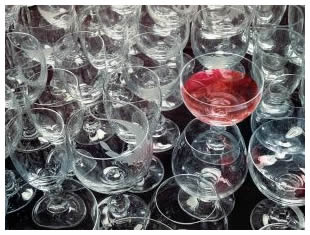 Substance-Related Disorders form the one group of psychiatric conditions that cause the majority of self-harm, emotional turmoil, family hardship, and financial woes: much more so than other psychiatric disorders. The ongoing and outreaching effects on the individual and the greater community of substance abuse problems causes more stress and social breakdown than any of the higher profile mental illnesses such as schizophrenia and bipolar disorder.
Substance-Related Disorders form the one group of psychiatric conditions that cause the majority of self-harm, emotional turmoil, family hardship, and financial woes: much more so than other psychiatric disorders. The ongoing and outreaching effects on the individual and the greater community of substance abuse problems causes more stress and social breakdown than any of the higher profile mental illnesses such as schizophrenia and bipolar disorder.
While the latter illnesses cause extreme distress to the sufferer as well as their immediate family and friends, the issue of substance abuse and the accompanying lifestyle is implicated in street crime, homelessness, family breakdown, gang violence, crime: not to mention the sheer misery to the affected individual who is ultimately trapped in the web of addiction.
Substance abuse disorders cost US taxpayers alone hundreds of billions of dollars each year and kills over half a million US citizens per year, either directly or indirectly.
However, the majority of us have acted in ways characteristic of these disorders at some point in our lives. In this series we will look at how behaviors such as cigarette smoking, drinking alcohol and using both legal and illegal drugs can contribute to the dramatic financial and emotional cost of addiction.
There are a variety of substances that people take to alter the way they think, feel and behave. These disorders represent a problem that has been with us for thousands of years as humans strive to cope with the rigors of life the best way they know how. Obviously, for some people, the so-called solution becomes part of the problem.
This quote from Caroline Knapp in her book Drinking: A Love Story pretty much sums it up:
For a long time, when it’s working, (it) feels like a path to enlightenment, something that turns us into the person we wish to be, or the person we think we are. In some ways the dynamic is this simple: (it) makes everything better until it makes everything worse.
In coming blogs, we’ll look at criteria for substance abuse and substance dependence.
Contact Beth McHugh for further assistance regarding this issue.
Related Articles:
The link between IQ, binge drinking, and hangovers
Childhood behavioral problems and binge drinking

